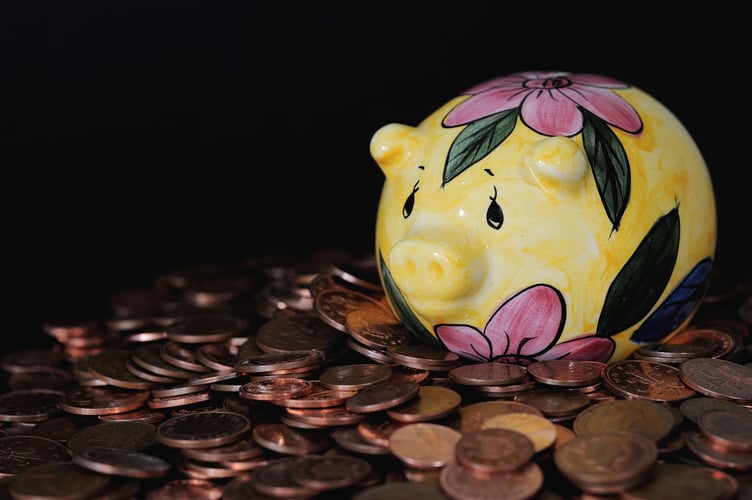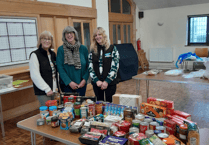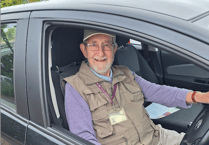Just one in 10 taxpayers in Bridgwater and West Somerset recorded a donation to charity last year, new estimates show.
It comes as the likelihood to donate varied significantly across UK regions.
The National Council for Voluntary Organisations said "donations from the public remain a vital source of income for charities", and warned of a decline in public giving.
HM Revenue and Customs figures estimate around 2,000 people in Bridgwater and West Somerset declared a charity donation via self-assessment return in the year to April.
It means about 9% of taxpayers in the constituency declared a donation.
The figures only account for donors who entered a donation in the relevant section of a self-assessment tax return form, as gift aided cash donations or in the form of gifted qualifying assets gifted to charity.
Donating through gift aid means charities and community amateur sports clubs can claim an extra 25p for every £1 donated.
Donors are not charged the extra and can claim tax relief on donations made in the current tax year in their self-assessment tax return.
The mean donation in Bridgwater and West Somerset represented roughly 2% of the donors' gross income.
The figures also show the constituency's total declared donations was around £2 million in the year to April.
Across the UK, some 1.31 million people declared a charity donation via self-assessment last year – slightly down from 1.33 million the year before, but up from 1.27 million five years ago in the year to April 2019.
Although the number of donors slightly decreased last year, the value of their declarations rose by 3%, from £4 billion in the year to April 2023 to £4.1 billion last year.
Of these donations, £3.6 billion was donated in Gift Aid.
The figures suggest likelihood to donate varied significantly across the country.
Self-assessed taxpayers in London and the South East of England were the most likely to donate, with 14% and 15% of their population respectively declaring a donation, compared to 8% across the North East of England and Wales.
Additionally, donors in Northern Ireland donated the highest proportion of their income, at 4% of the nation's average salary, compared to 2% across the UK.
In the South West, some 12% of people entered a charity donation in their self-assessment tax return in the year to April. The mean contribution in the region represented around 2% of these donors' gross income.
National Council for Voluntary Organisations executive director Saskia Konynenburg said: "Donations from the public remain a vital source of income for charities, particularly at a time when operating costs are rising and demand for services is higher than ever.
"We know from our own research that overall public giving is in decline, so it is encouraging that those using charity tax relief continue to donate."
She highlighted people are incited to donate where there are tax benefits, adding "we need a tax system that enables more people to take advantage of those incentives".
But she also said: "While tax relief can be a useful motivator, ultimately, people support charities because they care.
"That generosity can be found in every part of the UK, not just through financial donations, but also through the millions who give their time, skills and energy by volunteering in their communities."
The figures also show likelihood to donate increases with income. Around 7% of self-assessment taxpayers with an annual income under £50,000 declared a donation in the year to April, compared to 36% of those with a yearly income over £250,000.
However, donors earning under £50,000 a year donated the largest proportion of their gross income compared with higher earners, at 3% of their income on average.




